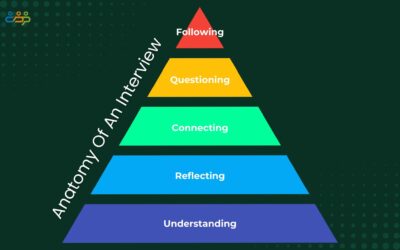Mastering the Art of Active Listening for Stronger Connections
“Can you hear me now?’ was the popular tag line in a commercial for a cell phone company. But the real question we should be asking in our everyday communications is “Are you listening?”
Hearing and listening are very different. Hearing is the physical act of having sound waves hitting our ear drums, except for those who are hearing impaired, is a normal part of our day. Listening, on the other hand, means to interpret the noise, understand it and provide an appropriate response to it.
Listening attentively not only enables us to know and understand each other better, but it also shows respect and helps to build stronger relationships. During any interaction, active listening demonstrates interest, builds rapport and makes others more open to share information with you. A person who listens and communicates well is viewed much more favorably by others.
Developing good listening skills is essential for effective communication. Fortunately, there are concrete steps you can take to enhance your ability to actively listen and connect with others. Let’s delve into practical techniques for mastering active listening and elevating your communication skills.
Mastering Active Listening: Practical Techniques for Enhancing Communication
Be present in the moment. This means shutting down the mind chatter or the inner conversations and focusing completely on what the other person is saying.
Look at the person who is speaking. Maintain eye contact, or rather face contact, which does not mean staring unblinkingly at the speaker.
Nod to show you understand, agree, or simply that you are listening.
Make sounds of agreement or understanding. These can be simple: “mm”, “I see”, “uh uh”, “I understand”, “yes”, etc. These are clear and audible indications that you are interested and paying attention.
Adopt an open posture. Simple awareness of whether you are leaning toward the speaker or away, if you have your arms folded, your head tilted and are occasionally nodding, indicate to the other person whether they have your undivided attention or not.
Ask specific and relevant questions to understand or clarify what is not clear, eliminating the risk of a communication breakdown or time-wasting.
Paraphrase what you have heard. Paraphrasing or summarizing has two outcomes: to check your understanding as well as convey to the speaker that you have been listening.
Observe the speaker’s non-verbal cues too. You can learn a lot from their body language and vocal qualities. From their posture, gestures, eye contact and facial expressions, pauses and pace of speaking, you can gain understanding of their attitude, emotions and intentions. For example, are they nervous, aggressive, hiding something, worried, insincere, etc. You will also be able to read between the lines and hear what they are not saying.
Suspend judgment or evaluation until you have heard and assessed everything. This will enable you to respond rather than react.
Fostering Understanding and Connection
In a world filled with constant noise and endless distractions, the true art of listening has become a precious rarity. Through mastering the skill of active listening, we not only deepen our understanding of others but also convey respect and empathy in our interactions. Communication transcends mere words; it’s about forging genuine connections and nurturing meaningful relationships. So, the next time you engage in conversation, take a moment to reflect: “Are you truly listening?” Your sincere presence and attentive ears have the power to unlock profound connections and foster mutual understanding in every exchange.




